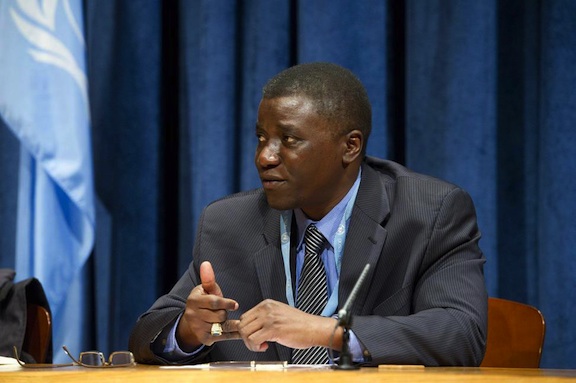Haiti: UN Official Urges New Approach on Internally Displaced Persons
Above: Chaloka Beyani, special rapporteur on the human rights of internally displaced persons for the United Nations (UN Photo/Evan Schneider)
By the Caribbean Journal staff
It is time to move from a “largely humanitarian approach to a development-based drive in Haiti,” a United Nations official said this week.
Chaloka Beyani, the UN’s special rapporteur on the human rights of internally displaced persons, said it was “high time to focus on a development approach for the achievement of durable solutions for the displaced.”
“Durable solutions are reached only when the needs related to displacement no longer exist, which is medium to long term complex development led process for all IDPs and not just those living in camps or sites,” he said following a week-long visit to Haiti.
For Beyani, closing camps “by itself does not mean that durable solutions for them have been found.”
The number of displaced persons in Haiti has fallen from about 1.5 million 2010 following the earthquake to about 100,000.
But “much more needs to be done,” he said.
That includes everything from a comprehensive housing policy that targets internally displaced persons to an improvement to the existing rental subsidy policy that helps IDPs leave camps.
“To be sustainable, this policy must be linked to livelihoods and income-generating activities and benefit the entire community where IDPs are settled, including through enhanced access to basic services,” he said.
That does not mean, however, that humanitarian support does not remain a priority, he said.
“Humanitarian support should continue in the remaining camps or sites to address the dire living conditions of some of the IDPs and to respond to their basic needs, particularly water and sanitation, which are critical to public health,” he said.







